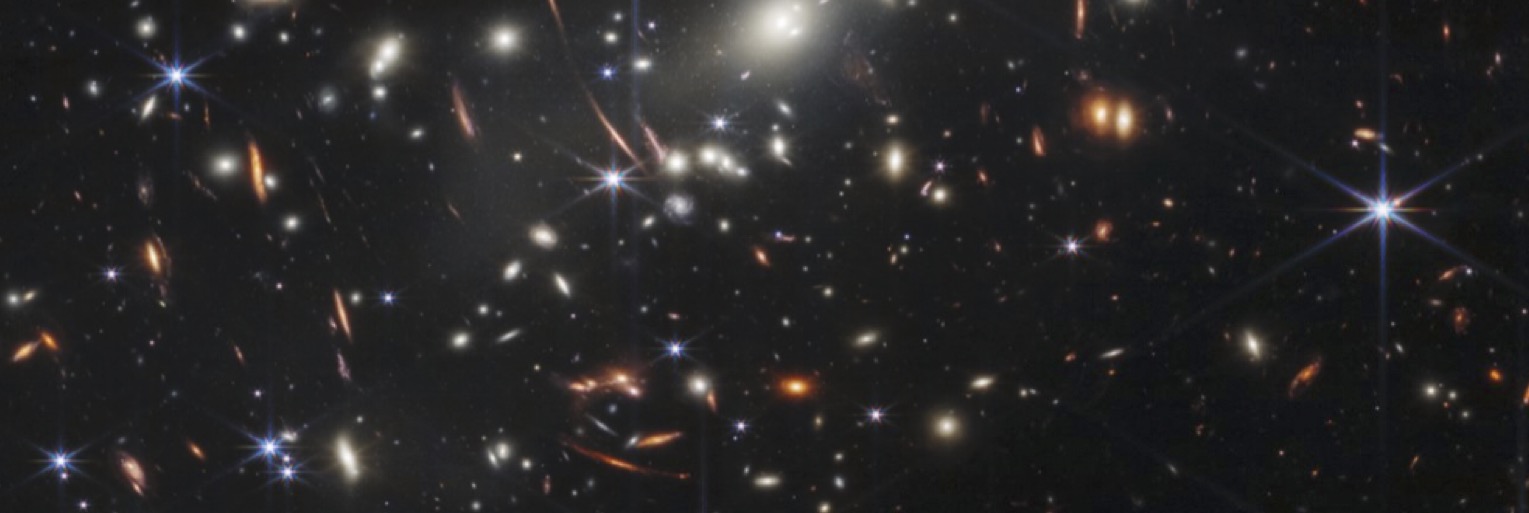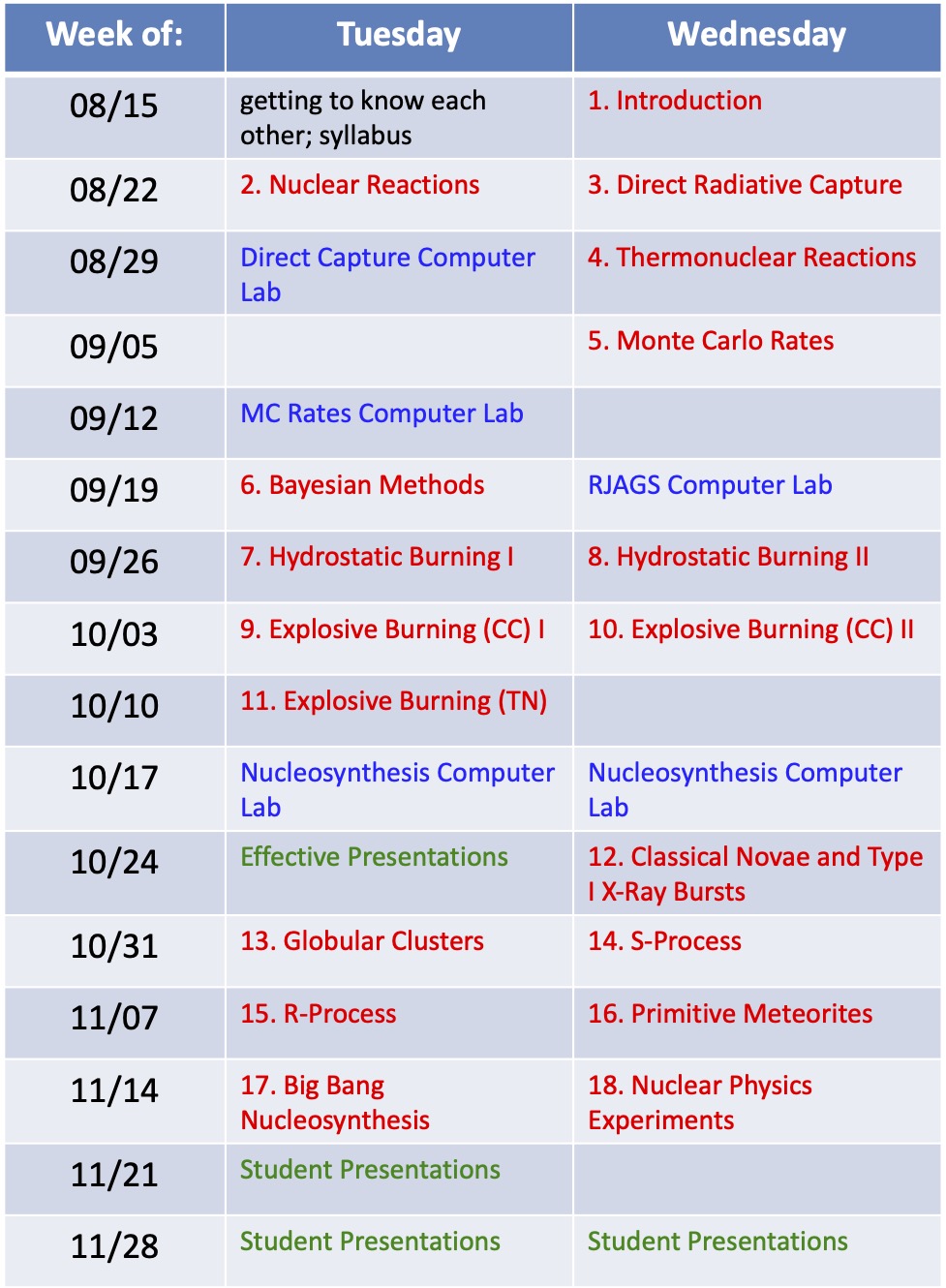Tue/Wed 3:30 – 5:00 pm
FEL Conference Room, TUNL, Duke University

SYLLABUS
Instructor: Prof. Christian Iliadis (office TUNL 410; email: iliadis@unc.edu; webpage: https://iliadis.web.unc.edu); office hours: by appointment.
What this course is about: You will learn where nuclear reactions occur in the universe, how they generate energy to power almost all astrophysical phenomena, and how they synthesize elements and give rise to the baryonic matter composition in the cosmos. We will discuss thermonuclear reactions, nucleosynthesis, nuclear burning stages in stars, the sun, supernovae, and related topics. You will also learn about numerical modeling. After you have taken this course, you will appreciate the physics expressed in the image shown above [which depicts the James Webb Telescope’s first Deep Field image]. You will also learn how to give effective science presentations and how to write scientific papers. You will find the course schedule appended below.
Prerequisites: An undergraduate course in nuclear physics would be helpful, but is not required.
Attendance: The course depends on your initiative and enthusiasm and thus I expect you to attend all scheduled classes. I request 100% of your attention during class. The use of cellphones, iPads, or similar, for texting, emailing, web browsing, skyping, facetiming, twittering, phone calling, etc., is strictly prohibited when class is in session. If you are found doing any of the above during class, I will ask you to leave class.
Honor code: Your full participation and observance of the Honor codes of UNC and NCSU is expected. All academic work in this course, including written assignments, is to be your own work, unless otherwise specifically provided. It is your responsibility, if you have any doubt, to confirm whether or not collaboration is permitted.
Textbook: “Nuclear Physics of Stars”, C. Iliadis (2nd edition; Wiley-VCH, 2015). Note: all of my class notes and all required computer codes will be available on Sakai.
Homework and Examinations: There will be no graded homework, no midterms, no final exam. That’s good news…
Projects: …and there is more good news: You will choose a research topic and will write a scientific paper and give an oral class presentation about it. The topic you pick must have both a nuclear physics and astrophysics connection. I encourage you to choose your own topic, or, if you prefer, I can suggest one to you. You will submit several iterations of your paper over the course of the semester. Due dates are listed below. Your presentation will be about 20 minutes long.
Grades: The final grade will be based on: (i) class participation [10%]; (ii) oral research presentation [40%]; and (iii) research paper [50%]. There will be no extra credit in this course.
Choose research topic by: Tue, Aug. 30.
Paper iteration #1: Wed, September 21.
Paper iteration #2: Wed, October 19.
Paper final due: Tue, Nov 22.
Presentations: Tue Nov. 22; Tue Nov. 29; Wed Nov. 30 [during class].
I reserve the right to make changes on this syllabus.
COURSE SCHEDULE

